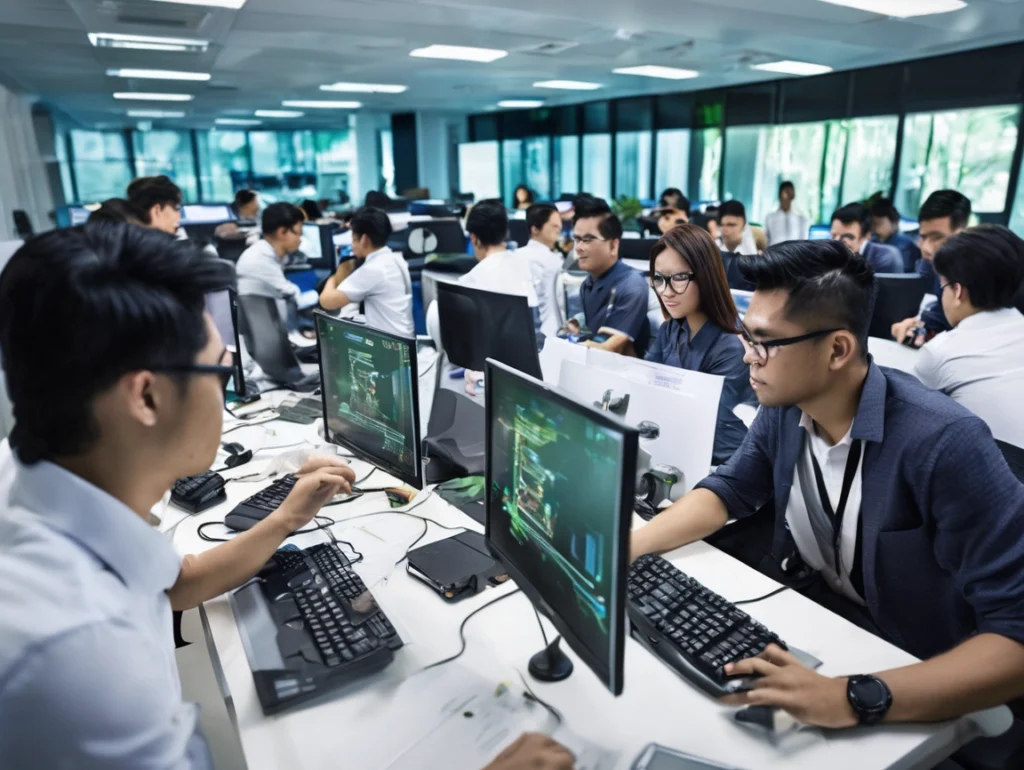Leveraging Thai Project Management Expertise for Global Success
Thai project management expertise is characterized by a unique blend of traditional and contemporary practices that emphasize adaptability, resourcefulness, and collaboration. The Thai concept of “Kreng Jai,” which reflects a respectful consideration for others, fosters a cooperative atmosphere conducive to team dynamics. This cultural nuance enables Thai project managers to navigate complex interpersonal relationships, ensuring smoother communication and reducing conflict in multinational teams. Embracing these soft skills, alongside technical knowledge, can significantly enhance project outcomes on a global scale.
Moreover, Thailand’s commitment to education in project management has produced a cadre of skilled professionals adept in internationally recognized methodologies such as Agile, PRINCE2, and PMBOK. These frameworks encourage systematic planning and execution, making Thai project managers capable of aligning local initiatives with global standards. Organizations that tap into this expertise not only benefit from proven methodologies but also gain insights into regional markets and customs, which are crucial for tailoring project objectives to local needs.
Finally, the Thai government’s initiatives to promote digital transformation and innovation in project management have positioned Thailand as a hub for project management excellence in Southeast Asia. With a growing number of training programs and workshops, as well as support from organizations like the Project Management Institute, project managers are well-equipped to lead successful international projects. By capitalizing on Thailand’s rich reservoir of project management knowledge, global organizations can set the stage for enhanced collaboration and achievement.
Strategies for Effective International Collaboration in Projects
To ensure the success of international projects, organizations must adopt strategies that foster effective collaboration among geographically dispersed teams. One essential approach is establishing clear communication protocols that account for different time zones, languages, and cultural variations. Tools such as Slack and Microsoft Teams can facilitate real-time communication, while project management platforms like Trello or Asana allow for streamlined task management and transparency in project progress. Regular video conferencing can further enhance interpersonal connections and engagement among team members.
Cultural sensitivity is another critical strategy for fostering international collaboration. Understanding and respecting cultural differences can significantly affect team dynamics and productivity. Thai project managers can leverage their cultural insights not only to guide their teams but also to educate international colleagues about local practices and preferences. This cross-cultural training can lead to greater empathy and cooperation, ultimately enriching the collaborative experience and leading to more successful project outcomes.
Additionally, establishing well-defined roles and responsibilities early in the project lifecycle can mitigate confusion and enhance accountability. Utilizing frameworks like RACI (Responsible, Accountable, Consulted, Informed) can streamline decision-making processes and clarify expectations among team members. When every participant understands their role and the contributions of their colleagues, teams can operate more efficiently, making it easier to adapt to challenges that arise during the project. By implementing these strategies, organizations can cultivate a collaborative environment that is conducive to achieving global project success.
In conclusion, leveraging Thai project management expertise can significantly enhance the success of international projects. By embracing the cultural nuances and methodologies unique to Thailand, organizations are better equipped to navigate the complexities of global collaboration. Implementing effective communication strategies, fostering cultural sensitivity, and establishing clear roles can further bolster these efforts. As businesses continue to operate on a global scale, integrating Thai PM expertise into project management practices may provide the competitive edge needed to thrive in an interconnected world.




